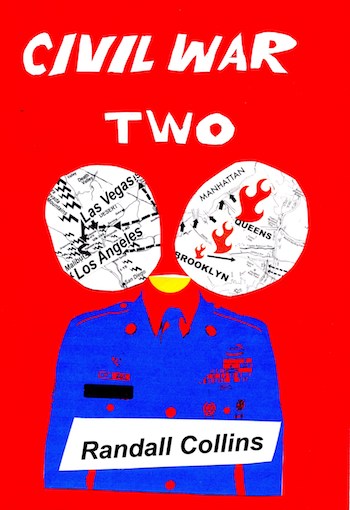Donald Trump, as is well known, has had a long-standing connection with the entertainment industry. This also included promoting sports events like boxing. His Trump Plaza Hotel in Atlantic City held the 1988 heavyweight championship fight between Mike Tyson and Michael Spinks. These connections would lead to Trump appearing in the pages of the men’s sex magazine, Penthouse.
Donald Trump with Penthouse Pet Leslie Glass, in Penthouse February 1992
Leslie Glass was the “round-card girl,” who paraded around the ring with a placard announcing the number of the next round, as the text for her photo feature explains. She also posed for a photo with Mike Tyson.
Leslie Glass on the cover of Girls of Penthouse, January 1993
Trump had also appeared on the cover of Playboy two years earlier. The issue contained an interview with Trump—following the magazine’s practice of interviewing celebrities and political figures. Jimmy Carter had a famous Playboy interview published in November 1976 while running for President, although he did not appear on the cover. Trump’s cover shot included Playboy’s Playmate of the Month, Brandi Brandt (who had appeared in the centerfold for October 1987). The cover quotes Trump as saying “Nice magazine, want to sell it?”
Trump with Playmate Brandi Brandt, Playboy March 1990
Donald Trump’s appearance in Penthouse was followed three months later by an issue with his wife Ivana Trump on the cover, then in the process of getting a divorce. Ivana also gave an interview, about her life and loves and her new book.
Ivana Trump on Penthouse cover, May 1992
Trump crossed paths with Penthouse owner Bob Guccione in another way. In 1978, Guccione bought property in Atlantic City and began construction of the Penthouse Boardwalk Hotel and Casino. In the 1970s, Penthouse Magazine had rocketed to a circulation of 4.5 million, making it one of the largest selling magazines of any kind in the U.S. Guccione became listed in Forbes Magazine as one of the 400 richest persons in America. But Guccione was denied a license to operate a casino. Construction stopped in 1980, and the building sat empty until 1993, when it was purchased by Donald Trump. Guccione lost $145-160 million of his own money in the project.
Gambling had been legalized in Atlantic City in 1977, and in 1978 Trump also bought property and began construction of what would become the Trump Plaza Hotel. It was the first of three casinos he would own in Atlantic City.
Is any of this a surprise? Not really. Trump was in a similar business as Guccione, promoting glitzy entertainment and buying real estate. Given their New York base of operations, it was not unlikely their networks would intersect. Hugh Hefner, with his string of Playboy Clubs and other properties, operated similarly. So did their British equivalent, Paul Raymond, who ran night clubs, published sex magazines, and was called “King of Soho” for his domination of the London entertainment district real estate, and ended with a fortune of over a billion dollars. Trump was just the most successful of them all.
For a more elaborate analysis of this field, see “Hefner’s Playboy: Spin-off of Esquire’s Niche.” Creativity via Sociology
References
John Colapinto, “The Twilight of Bob Guccione.” Interview in Rolling Stone, April 1, 2004.
Wikipedia articles on Robert Guccione, Paul Raymond, and Donald Trump






